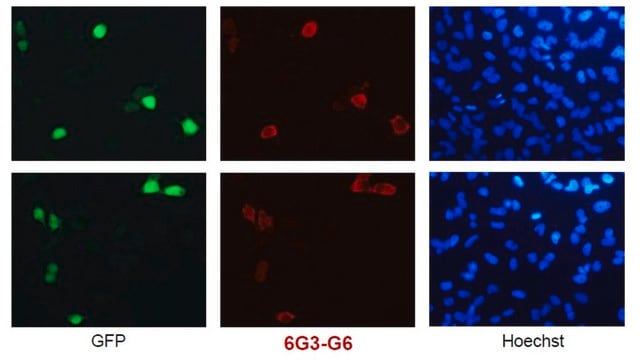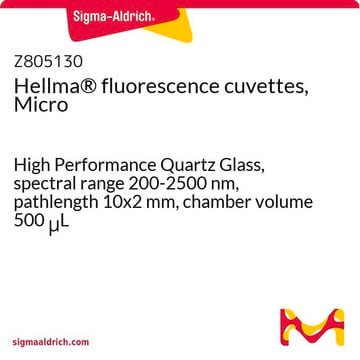ZMS1075
Anti-SARS-CoV-1/2 NP Antibody, clone 1C7C7 ZooMAb® Mouse Monoclonal

recombinant, expressed in HEK 293 cells
Sinónimos:
NC, Nucleocapsid protein, Protein N.
About This Item
Productos recomendados
biological source
mouse (recombinant)
Quality Level
recombinant
expressed in HEK 293 cells
conjugate
unconjugated
antibody form
purified antibody
antibody product type
primary antibodies
clone
1C7C7, recombinant monoclonal
product line
ZooMAb® learn more
form
lyophilized
mol wt
calculated mol wt 45.63 kDa (SARS-CoV-2)
calculated mol wt 46.03 kDa (SARS-CoV)
observed mol wt ~46 kDa
species reactivity
SARS virus
packaging
antibody small pack of 25 μL
greener alternative product characteristics
Waste Prevention
Designing Safer Chemicals
Design for Energy Efficiency
Learn more about the Principles of Green Chemistry.
enhanced validation
recombinant expression
Learn more about Antibody Enhanced Validation
sustainability
Greener Alternative Product
technique(s)
affinity binding assay: suitable
flow cytometry: 1 μg/mL
immunocytochemistry: suitable
western blot: 1 μg/mL
isotype
IgG2aκ
greener alternative category
, Aligned
shipped in
ambient
storage temp.
2-8°C
target post-translational modification
unmodified
Gene Information
SARS coronavirus ... N(43740575)
SARS virus ... N(1489678)
General description
Each ZooMAb antibody is manufactured using our proprietary recombinant expression system, purified to homogeneity, and precisely dispensed to produce robust and highly reproducible lot-to-lot consistency. Only top-performing clones are released for use by researchers. Each antibody is validated for high specificity and affinity across multiple applications, including its most commonly used application. ZooMAb antibodies are reliably available and ready to ship when you need them.
Learn more about ZooMAb here.
Specificity
Immunogen
Application
Immunocytochemistry Analysis: 1 μg/mL from a representative lot detected SARS-CoV-1/2 NP in Vero E6 cells infected with SARs-CoV-2 (Courtesy of Dr Ana Fernandez-Sesma Laboratory, Icahn School of Medicine at Mount Sinai (ISMMS), New York).
Western Blotting Analysis: A 1:5,000 dilution of this antibody detected SARS-CoV-1/2 NP in lysate from A549 cells infected with SARS-CoV-2 (Courtesy of Jeff Johnson Laboratory, Icahn School of Medicine at Mount Sinai (ISMMS).
Affinity Binding Assay: This antibody bound recombinant nucleoprotein from SARS-CoV-1/2 with a KD of 4.4 x 10-7 in an affinity binding assay.
Note: Actual optimal working dilutions must be determined by end user as specimens, and experimental conditions may vary with the end user
Target description
Physical form
Reconstitution
Storage and Stability
Legal Information
Disclaimer
Data presented is the available current product information and provided as-is. These products have not been tested or verified in any additional applications, sample types, including any clinical use. Experimental conditions must be empirically derived by the user. Our Antibody Guarantee only covers tested applications stated herein and conditions presented in our product information and is not extended to publications.
Not finding the right product?
Try our Herramienta de selección de productos.
Storage Class
11 - Combustible Solids
wgk_germany
WGK 1
flash_point_f
Not applicable
flash_point_c
Not applicable
Certificados de análisis (COA)
Busque Certificados de análisis (COA) introduciendo el número de lote del producto. Los números de lote se encuentran en la etiqueta del producto después de las palabras «Lot» o «Batch»
¿Ya tiene este producto?
Encuentre la documentación para los productos que ha comprado recientemente en la Biblioteca de documentos.
Nuestro equipo de científicos tiene experiencia en todas las áreas de investigación: Ciencias de la vida, Ciencia de los materiales, Síntesis química, Cromatografía, Analítica y muchas otras.
Póngase en contacto con el Servicio técnico




